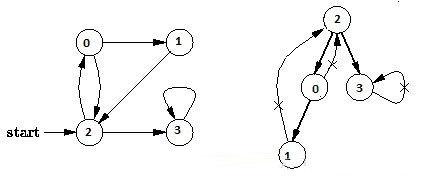最近比较忙,没来得及抽时间把MyBatis的集成发出来,其实mybatis官网在2015年11月底就已经发布了对SpringBoot集成的Release版本,示例代码:spring-boot.rar
前面对JPA和JDBC连接数据库做了说明,本文也是参考官方的代码做个总结。
先说个题外话,SpringBoot默认使用 org.apache.tomcat.jdbc.pool.DataSource
现在有个叫 HikariCP 的JDBC连接池组件,据说其性能比常用的 c3p0、tomcat、bone、vibur 这些要高很多。
我打算把工程中的DataSource变更为HirakiDataSource,做法很简单:
首先在application.properties配置文件中指定dataSourceType
|
1
|
spring.datasource.type=com.zaxxer.hikari.HikariDataSource
|
然后在pom中添加Hikari的依赖
|
1
2
3
4
5
|
<dependency>
<groupId>com.zaxxer</groupId>
|
言归正传,下面说在spring Boot中配置MyBatis。
关于在Spring Boot中集成MyBatis,可以选用基于注解的方式,也可以选择xml文件配置的方式。通过对两者进行实际的使用,还是建议使用XML的方式(官方也建议使用XML)。
下面将介绍通过xml的方式来实现查询,其次会简单说一下注解方式,最后会附上分页插件(PageHelper)的集成。
一、通过xml配置文件方式
1、添加pom依赖
|
1
2
3
4
5
6
|
<dependency>
<groupId>org.mybatis.spring.boot</groupId>
<artifactId>mybatis-spring-boot-starter</artifactId>
<!-- 请不要使用1.0.0版本,因为还不支持拦截器插件,1.0.1-SNAPSHOT 是博主写帖子时候的版本,大家使用最新版本即可 -->
<version>1.0.1-SNAPSHOT</version>
</dependency>
|
2、创建接口Mapper(不是类)和对应的Mapper.xml文件
定义相关方法,注意方法名称要和Mapper.xml文件中的id一致,这样会自动对应上
StudentMapper.Java
|
1
2
3
4
5
6
7
8
9
10
11
12
13
14
15
16
17
18
19
20
21
|
package org.springboot.sample.mapper;
import java.util.List;
import org.springboot.sample.entity.Student;
/**
* StudentMapper,映射SQL语句的接口,无逻辑实现
*
* @author 单红宇(365384722)
* @create 2016年1月20日
*/
public interface StudentMapper extends MyMapper<Student> {
List<Student> likeName(String name);
Student getById(int id);
String getNameById(int id);
}
|
MyMapper.java
|
1
2
3
4
5
6
7
8
9
10
11
12
13
|
package org.springboot.sample.config.mybatis;
import tk.mybatis.mapper.common.Mapper;
import tk.mybatis.mapper.common.MySqlMapper;
/**
* 被继承的Mapper,一般业务Mapper继承它
*
*/
public interface MyMapper<T> extends Mapper<T>, MySqlMapper<T> {
//TODO
//FIXME 特别注意,该接口不能被扫描到,否则会出错
}
|
StudentMapper.xml
|
1
2
3
4
5
6
7
8
9
10
11
12
13
14
15
16
17
18
19
20
21
22
23
24
25
26
27
28
29
30
31
32
33
34
|
<?xml version="1.0" encoding="UTF-8"?>
<!DOCTYPE mapper PUBLIC "-//mybatis.org//DTD Mapper 3.0//EN"
"http://mybatis.org/dtd/mybatis-3-mapper.dtd">
<mapper namespace="org.springboot.sample.mapper.StudentMapper">
<!-- type为实体类Student,包名已经配置,可以直接写类名 -->
<resultMap id="stuMap" type="Student">
<id property="id" column="id" />
<result property="name" column="name" />
<result property="sumScore" column="score_sum" />
<result property="avgScore" column="score_avg" />
<result property="age" column="age" />
</resultMap>
<select id="getById" resultMap="stuMap" resultType="Student">
SELECT *
FROM STUDENT
WHERE ID = #{id}
</select>
<select id="likeName" resultMap="stuMap" parameterType="string" resultType="list">
SELECT *
FROM STUDENT
WHERE NAME LIKE CONCAT('%',#{name},'%')
</select>
<select id="getNameById" resultType="string">
SELECT NAME
FROM STUDENT
WHERE ID = #{id}
</select>
</mapper>
|
3、实体类
|
1
2
3
4
5
6
7
8
9
10
11
12
13
14
15
16
17
18
19
20
21
22
23
|
package org.springboot.sample.entity;
import java.io.Serializable;
/**
* 学生实体
*
* @author 单红宇(365384722)
* @create 2016年1月12日
*/
public class Student implements Serializable{
private static final long serialVersionUID = 2120869894112984147L;
private int id;
private String name;
private String sumScore;
private String avgScore;
private int age;
// get set 方法省略
}
|
4、修改application.properties 配置文件
|
1
2
|
mybatis.mapper-locations=classpath*:org/springboot/sample/mapper/sql/mysql/*Mapper.xml
mybatis.type-aliases-package=org.springboot.sample.entity
|
5、在Controller或Service调用方法测试
|
1
2
3
4
5
6
7
|
@Autowired
private StudentMapper stuMapper;
@RequestMapping("/likeName")
public List<Student> likeName(@RequestParam String name){
return stuMapper.likeName(name);
}
|
二、使用注解方式
查看官方Git上的代码使用注解方式,配置上很简单,使用上要对注解多做了解。至于xml和注解这两种哪种方法好,众口难调还是要看每个人吧。
1、启动类(我的)中添加@MapperScan注解
|
1
2
3
4
5
6
7
8
9
10
11
12
13
14
15
16
17
|
@SpringBootApplication
@MapperScan("sample.mybatis.mapper")
public class SampleMybatisApplication implements CommandLineRunner {
@Autowired
private CityMapper cityMapper;
public static void main(String[] args) {
SpringApplication.run(SampleMybatisApplication.class, args);
}
@Override
public void run(String... args) throws Exception {
System.out.println(this.cityMapper.findByState("CA"));
}
}
|
2、在接口上使用注解定义CRUD语句
|
1
2
3
4
5
6
7
8
9
10
11
12
13
14
15
16
|
package sample.mybatis.mapper;
import org.apache.ibatis.annotations.Param;
import org.apache.ibatis.annotations.Select;
import sample.mybatis.domain.City;
/**
* @author Eddú Meléndez
*/
public interface CityMapper {
@Select("SELECT * FROM CITY WHERE state = #{state}")
City findByState(@Param("state") String state);
}
|
其中City就是一个普通Java类。
三、集成分页插件
这里与其说集成分页插件,不如说是介绍如何集成一个plugin。MyBatis提供了拦截器接口,我们可以实现自己的拦截器,将其作为一个plugin装入到SqlSessionFactory中。
有位开发者写了一个分页插件,我觉得使用起来还可以,挺方便的。
项目地址: Mybatis-PageHelper.rar
下面简单介绍下:
首先要说的是,Spring在依赖注入bean的时候,会把所有实现MyBatis中Interceptor接口的所有类都注入到SqlSessionFactory中,作为plugin存在。既然如此,我们集成一个plugin便很简单了,只需要使用@Bean创建PageHelper对象即可。
1、添加pom依赖
|
1
2
3
4
5
|
<dependency>
<groupId>com.github.pagehelper</groupId>
<artifactId>pagehelper</artifactId>
<version>4.1.0</version>
</dependency>
|
2、新增MyBatisConfiguration.java
|
1
2
3
4
5
6
7
8
9
10
11
12
13
14
15
16
17
18
19
20
21
22
23
24
25
26
27
28
29
30
31
32
33
34
35
|
package org.springboot.sample.config;
import java.util.Properties;
import org.slf4j.Logger;
import org.slf4j.LoggerFactory;
import org.springframework.context.annotation.Bean;
import org.springframework.context.annotation.Configuration;
import com.github.pagehelper.PageHelper;
/**
* MyBatis 配置
*
* @author 单红宇(365384722)
* @create 2016年1月21日
*/
@Configuration
public class MyBatisConfiguration {
private static final Logger logger = LoggerFactory.getLogger(MyBatisConfiguration.class);
@Bean
public PageHelper pageHelper() {
logger.info("注册MyBatis分页插件PageHelper");
PageHelper pageHelper = new PageHelper();
Properties p = new Properties();
p.setProperty("offsetAsPageNum", "true");
p.setProperty("rowBoundsWithCount", "true");
p.setProperty("reasonable", "true");
pageHelper.setProperties(p);
return pageHelper;
}
}
|
3、分页查询测试
|
1
2
3
4
5
|
@RequestMapping("/likeName")
public List<Student> likeName(@RequestParam String name){
PageHelper.startPage(1, 1);
return stuMapper.likeName(name);
}
|
更多参数使用方法,详见PageHelper说明文档。
以上就是本文的全部内容,希望对大家的学习有所帮助,也希望大家多多支持快网idc。
原文链接:http://blog.csdn.net/catoop/article/details/50553714
相关文章
- ASP.NET本地开发时常见的配置错误及解决方法? 2025-06-10
- ASP.NET自助建站系统的数据库备份与恢复操作指南 2025-06-10
- 个人网站服务器域名解析设置指南:从购买到绑定全流程 2025-06-10
- 个人网站搭建:如何挑选具有弹性扩展能力的服务器? 2025-06-10
- 个人服务器网站搭建:如何选择适合自己的建站程序或框架? 2025-06-10
- 2025-07-10 怎样使用阿里云的安全工具进行服务器漏洞扫描和修复?
- 2025-07-10 怎样使用命令行工具优化Linux云服务器的Ping性能?
- 2025-07-10 怎样使用Xshell连接华为云服务器,实现高效远程管理?
- 2025-07-10 怎样利用云服务器D盘搭建稳定、高效的网站托管环境?
- 2025-07-10 怎样使用阿里云的安全组功能来增强服务器防火墙的安全性?
快网idc优惠网
QQ交流群
-
2025-05-29 66
-
云服务器资源不足怎么办?如何合理分配CPU、内存和存储空间?
2025-06-05 42 -
2025-05-25 92
-
2025-05-27 38
-
2025-05-29 13










